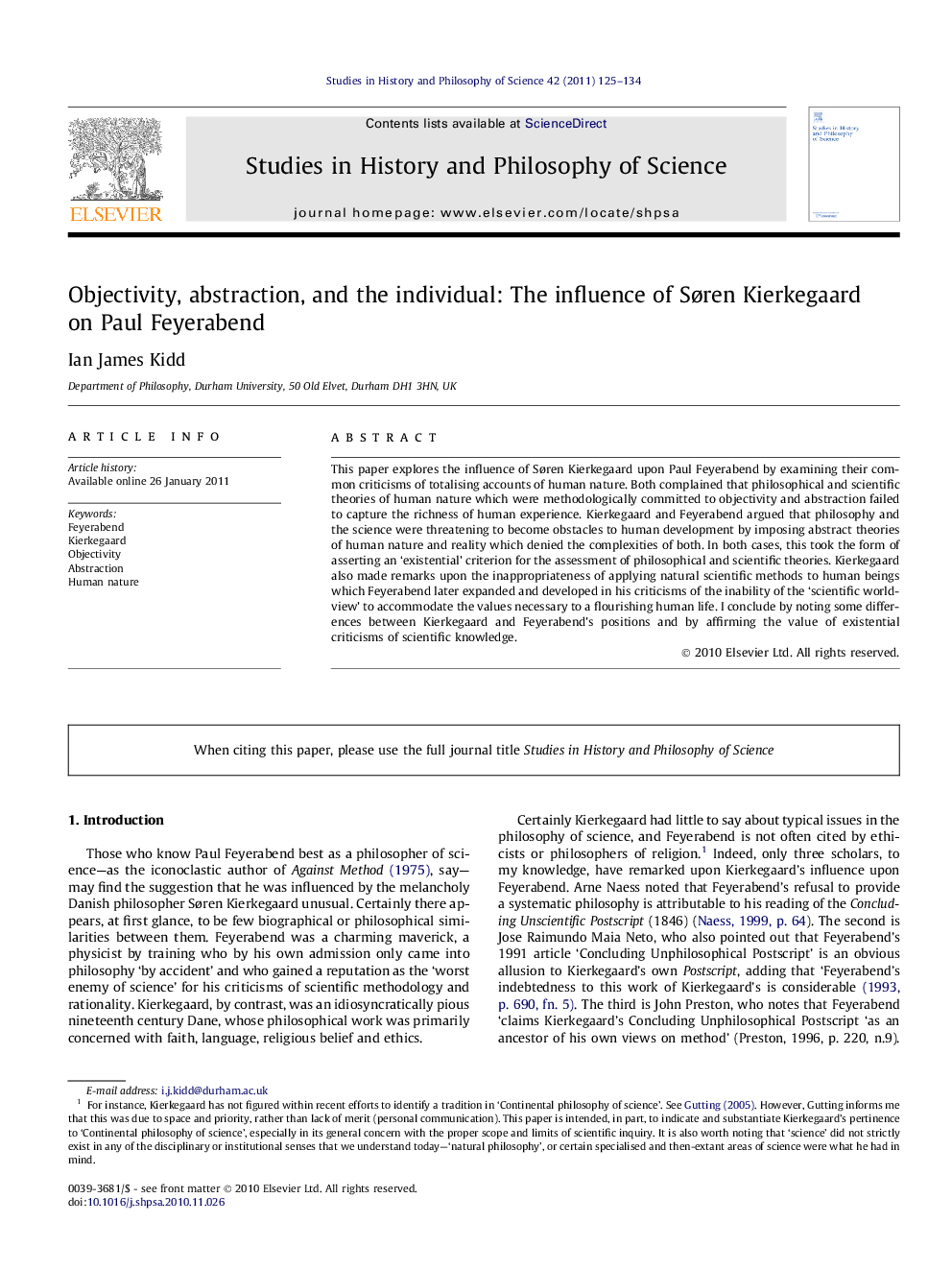| کد مقاله | کد نشریه | سال انتشار | مقاله انگلیسی | نسخه تمام متن |
|---|---|---|---|---|
| 1160564 | 1490349 | 2011 | 10 صفحه PDF | دانلود رایگان |

This paper explores the influence of Søren Kierkegaard upon Paul Feyerabend by examining their common criticisms of totalising accounts of human nature. Both complained that philosophical and scientific theories of human nature which were methodologically committed to objectivity and abstraction failed to capture the richness of human experience. Kierkegaard and Feyerabend argued that philosophy and the science were threatening to become obstacles to human development by imposing abstract theories of human nature and reality which denied the complexities of both. In both cases, this took the form of asserting an ‘existential’ criterion for the assessment of philosophical and scientific theories. Kierkegaard also made remarks upon the inappropriateness of applying natural scientific methods to human beings which Feyerabend later expanded and developed in his criticisms of the inability of the ‘scientific worldview’ to accommodate the values necessary to a flourishing human life. I conclude by noting some differences between Kierkegaard and Feyerabend’s positions and by affirming the value of existential criticisms of scientific knowledge.
Journal: Studies in History and Philosophy of Science Part A - Volume 42, Issue 1, March 2011, Pages 125–134